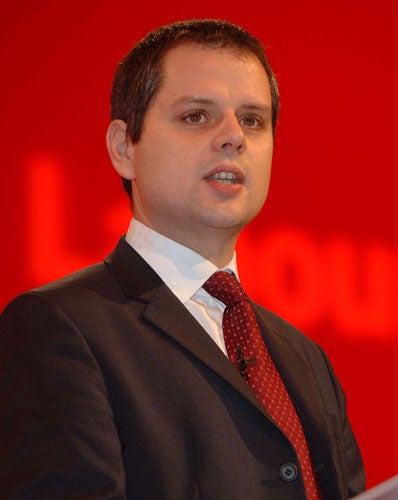Former Labour boss: I was hung out to dry
General secretary forced to resign over Abrahams affair breaks his silence

A former Labour general secretary who was forced to resign over £600,000 of secret donations to the party has accused Gordon Brown and other senior Labour figures of hanging him out to dry.
Peter Watt condemned elected politicians for hiding behind officials as he spoke about an 18-month "nightmare" in which he faced prosecution over 19 proxy donations by David Abrahams, a North-east property developer who gave money through friends and business associates.
Yesterday, the Crown Prosecution Service (CPS) announced that no one would be charged over the affair even though the law bans proxy donations to political parties. It considered prosecuting Mr Watt and his two predecessors – Matt Carter and Lord Triesman of Tottenham, now chairman of the Football Association – but said "inconsistencies in the evidence" meant there was no realistic prospect of a conviction.
When the scandal broke in 2007, Mr Watt bowed to pressure from the Labour leadership to stand down to defuse the crisis. He admitted he knew about the arrangement with Mr Abrahams.
Yesterday Mr Watt said: "When this matter involving contributions to the Labour Party became a story I was abandoned by the political leadership of the Labour Party without regard for the impact this would have on me and my family. I was resolute then and now in my belief of my innocence and that I had acted in good faith. I wish the same good faith and loyalty had been shown to me."
Mr Watt, now chief executive of The Campaign Company communications consultants, added: "Resolving the conundrum of the funding of political parties is difficult. Rules are inevitably complex and elections are expensive. What is not tolerable is that party officials of all political parties should be put in the firing line of the criminal law while elected politicians dive for cover."
He said that for the first time in months he and his family could "look to the future without worrying about 'what, when and if' and for that alone we are greatly relieved."
At the time, Mr Brown told reporters he had known nothing about the secret donations until they were revealed in the press. He described Mr Watt's resignation as "a necessary first step".
Labour officials pointed out that Mr Watt, who was legally responsible for the party's finances, accepted full responsibility in his resignation statement. But some former colleagues believe he has been badly treated by the party hierarchy. "He got a raw deal; he is a good guy," one senior Labour figure said yesterday.
It is the third lengthy police investigation into Labour finances to end without anyone being charged. The "cash for honours" affair destabilised Tony Blair's government, and Peter Hain resigned from the Cabinet last year when police began an inquiry into late declarations of more than £100,000 to his deputy leadership election campaign.
The Electoral Commission, which called in the police over the Abrahams affair, said the CPS had found that the donations register had been incorrectly completed but could not collate enough evidence to charge anybody. "The decision on whether or not to bring a prosecution is a matter for the CPS," it said.
Mr Abrahams said yesterday he believed he had broken no laws and had simply been trying to protect his identity, as "it's not my style to give donations in an ostentatious manner". He added: "I wish the Electoral Commission would spend more time doing things a bit more positive."
Labour put the Abrahams donations in an interest-bearing account and promised to repay the money – but still has not. It will now take legal advice on whether it should go to Mr Abrahams or the people who gave money on his behalf.
Cash for honours: Where are they now?
Peter Watt
Went to ground after being accused of not declaring Abrahams' donations. He has remained silent until now but always felt he was made a scapegoat. The former nurse was out of work for months before recently becoming chief executive of The Campaign Company – a firm of communications consultants.
Ruth Turner
Tony Blair's former gatekeeper was arrested at dawn as part of the first cash for honours investigation. She now works for his Faith Foundation.
Lord Levy
Known as "Tony Blair's cashpoint", Lord Levy was Labour's chief fundraiser and the principle target of the cash for honours inquiry. He went on to write his autobiography, A Question of Honour, and took his revenge. "They were very happy to take the money, they were very happy to spend the money," he said at the time. "But when things went wrong they didn't want any odour."
Assistant Commissioner John Yates
Led the cash for honours investigation but failed to secure any charges. Since then his career has gone from strength to strength. Last month he took over as head of counter-terrorism at the Met Police after the resignation of Bob Quick.
Subscribe to Independent Premium to bookmark this article
Want to bookmark your favourite articles and stories to read or reference later? Start your Independent Premium subscription today.

Join our commenting forum
Join thought-provoking conversations, follow other Independent readers and see their replies